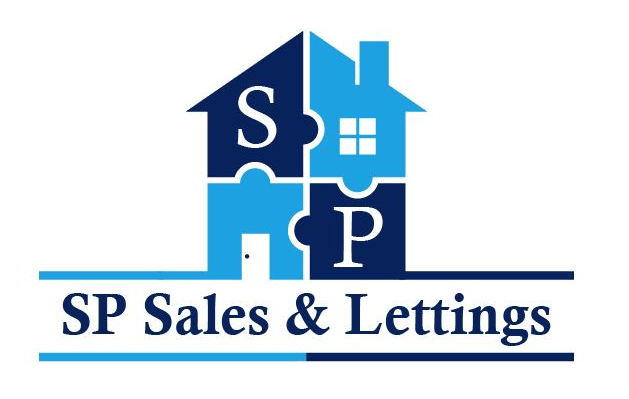
Are you moving home soon? If so, then you will have a range of questions to consider in order to ensure that your move is as smooth and stress-free as possible. One of the big things on most people’s minds is how long the conveyancing process can take. It can be daunting when you’re trying to stay organized for a house move, and knowing exactly how fast conveyancing can occur will help reduce any fear or worries about it taking too long. In this blog post, we’ll explore every aspect of this important task and provide some helpful tips on managing it quickly and efficiently.
Conveyancing typically takes a bit of time, but with conveyancing within England currently taking an average of 150 days (according to Right Move), and some home movers seeing even more delays, it can be a worrying time. Solicitors are dealing with long back logs in public offices due to the covid lockdown, so they are having to wait on documents such as grants of probate or power of attorney before the conveyancing process can move forward.
It’s true that conveyancing with no chain can potentially be quick, but it’s not always the case. Even if there is no chain involved in a conveyancing process, you can’t expect to see the completion date approach any sooner. Important factors still need to be taken care of- conveyancers will have to check over all legal documentation and ensure that everyone is legally prepared for the transaction. The speed of conveyancing also relies on all enquiries being quickly answered, regardless of whether or not there is a chain involved.
Unfortunately, it’s not immediately clear that cash buyers and sellers make conveyancing any quicker; they still might have one party in the chain waiting on public office information that forces them to wait longer. Taking steps to speed up conveyancing earlier in the process is key if you want quick conveyancing.
Making sure your conveyancing process is quick and success free requires effort from both you and your conveyancing solicitor. To help your conveyancing solicitor, there are several things you can do to speed up the conveyancing process: provide all relevant documents early on, respond promptly to any questions or requests for information, be flexible on signing documents and make sure you understand all the documents you’re signing. All of these steps will ensure that everything flows efficiently and quickly as possible so you can enjoy a smooth home move!
What can you do to speed up the conveyancing process?
Starting your conveyancing process early is key to a successful and quick conveyancing transaction. Although there are steps your solicitor will take once they take on your conveyance, having all the correct information ready as soon as possible ensures your solicitor will be able to begin working immediately. This makes sure that any potential problems can be dealt with quickly and also keeps communication open between you and your conveyancer so that you are aware of the progress being made in the conveyancing process. Getting legally ready at an early stage will help speed up proceedings, leaving you satisfied with a smooth conveyance experience.
When conveyancing, one of the earliest steps to starting the process is completing an enhanced AML (anti-money laundering) check. Luckily, there are online providers that offer this service which makes it much quicker and more convenient for conveyancers and home movers. The process will include taking a biometric scan of the client, verifying their identity against passwords and proof of address against household documents. After this has been completed, a report will be sent to your conveyancer so they can perform their regulatory checks before beginning any legal work. Even if you have already had your identity checked by the estate agent beforehand, you will still need an enhanced AML check which is necessary in order to start the conveyancing process quickly and easily.
When you buy a house there is additional information required.
First of all, you will need to show Proof of Funds.
This process involves ensuring you have the necessary funds for the purchase, and this is known as the Proof of Funds check. This means that your conveyancer may need to ascertain where the money used has come from within the last 6 months, so it’s important to factor this into your plans for quick conveyancing when you put an offer on a property.
Second of all you will need to order Searches.
A key part of conveyancing, which allows you to purchase a property, is ordering Searches. These searches provide information about the locality of your prospective property in order to protect your investment. During conveyancing, different reports such as local authority, environmental and coal mining can be requested so that any anomalies found can be queried and solved quickly. Armed with these available resources, conveyancing becomes a smoother and quicker process. Make sure all Searches are completed quickly at the beginning of the transaction as some Searches can take weeks to be completed and can delay transactions if they are not ordered promptly.
Selling your home doesn’t need to be as painful and time-consuming as conveyancing can sometimes seem. A major part of the conveyancing process is the enquiries stage which just means that “legal questions” are asked from the buyer’s solicitor to the seller’s solicitor. To make sure that conveyancing goes as smoothly and quickly as possible the seller should complete their protocol forms with clear and concise responses, ticking all relevant boxes. Where any documents or certificates are available, these should also be provided proactively to avoid additional questioning which can create delays. By anticipating buyer needs you’ll be taking charge of your conveyancing and ensuring there are no delays on your part.
During the conveyancing process, it can be easy to feel overwhelmed, especially when your solicitor is asking a lot of questions. Keeping up with replying in a timely manner will get things moving quickly and allow them to respond swiftly to the buyer’s solicitor. By doing this, it can help to make conveyancing a quicker experience, allowing you and your buyer to progress with the transaction more quickly. Even if you can’t find any specific documents like FENSA certificates for example, don’t panic – there are other measures which can be taken quickly and easily, such as an indemnity policy which protects your buyer from any potential issues related to that document.
Ensuring your conveyancing process is quick and successful can be a priority for many home movers, however it’s important to remember that providing your conveyancer with the time they need to complete the legal work is key. With The Agent Site, we consider that if conveyancers create proactive, jargon-free updates to both home movers and agents, it stops the need for multiple parties to contact them for updates – saving them valuable time. Unfortunately, there are plenty of guides online suggesting people should call their conveyancer every day – this takes away from their ability to carry out vital tasks. To assist your conveyancer and ensure conveyancing is as swift as possible, regularly check portals and emails for updates.
One of the best ways to help your solicitor give you a fantastic quick conveyancing service is to ensure that all of the necessary ID checks, proof of funds, searches check and paperwork are completed, signed and ready for your solicitor before they start the conveyancing process. Providing as many certificates as possible that relate to questions asked in the protocol forms can help speed up the conveyancing process immensely. However, don’t fret if you don’t have them all – work with your solicitor to find alternatives that can answer the questions from the buyer’s solicitor. Additionally, please resist any temptation to ask for daily updates on your conveyancing file as this will slow it down – contrary to what some websites might suggest!
Quick conveyancing can seem daunting, but it doesn’t have to be. By following just a few simple steps, you can help your conveyancing solicitor to provide the best conveyancing service possible. Being organised and getting ahead of any potential issues is key. Ensure that all documentation has been received when requested and review these documents thoroughly. Make sure you keep up with the conveyancing process and keep your solicitor informed at all times if there are changes or amendments to be made. Make sure all enquiries are answered as soon as possible – helping your conveyancer every step of the way will make for a smooth conveyancing journey!
If you instruct us, The Agent Site team can have you legally ready in 2 days – call us on 0161 710 1225 to find out more.







